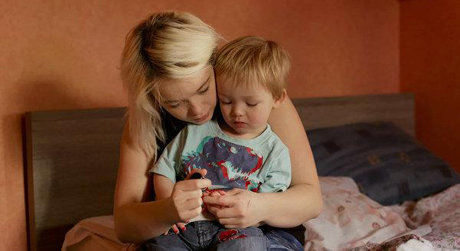
The monotony of modern office culture and its attendant angst are rarely treated as carefully as they are in Clockwatchers (1997), Jill Sprecher’s directorial debut. As a softer, more subtle precursor to Office Space (1999), Clockwatchers is a classic workplace satire from the depths of Generation X, but behind its lighthearted exterior sits a meditation on the commodification of time and its effects on our personhood.
The film follows Iris (played by Toni Collette), a young woman starting a job as an office temp at a generic corporate entity called Global Credit. On her first day, Iris is introduced to the other temps: there’s Margaret (Parker Posey), who is determined to land a permanent position despite her open skepticism about the company; Paula (Lisa Kudrow), the hopelessly romantic struggling actress; and Jane (Alana Ubach), a blushing bride-to-be.
“I once read there are two kinds of time,” Iris tell us early on in the film. “Mechanical and human. You could say my story began on 8:59 the day I started that job, and ended months later, when I left it. But I’d tell you it began in the past, with my old self, and ended in the future, with a new one.”
One way to read this film is through its plot–its mechanical structure; the other way is through the lens of human time—its mood and feeling.
The fluorescent overhead lighting in the office, for example, washes out the bright blues, oranges and yellows of the four lead characters’ wardrobes, making the contrast between the vibrant colours of the outside world and the dull, muted tones of Global Credit too large to ignore. When the women emerge from the office at the end of the day, it’s hard not to notice the sudden pop of their clothing. Clockwatchers, in terms of both plot and form,is a movie about human time amidst the pressures of the mechanical.
In the world of Global Credit, power is structured by time. The permanent employees, or “permanents,”as Margaret refers to them, have the corner offices. They make presentations to important investors. They sit in a separate enclave of the cafeteria. The four temporary workers—perceived as disposal and interchangeable enough that upper management doesn’t bother to learn their names—are treated as personae non gratae. “They never tell you anything,” says Jane, “because they’re afraid you’ll take their stupid jobs.” The temps are tasked with menial grunt work: photocopying, filing, taking messages for the permanents, who don’t answer calls before 10 a.m. Mostly the temps sit in their cubicles and wait for the clock to strike five. “The only real challenge of this job,” Margaret tells Iris flatly, “is trying to look busy when there’s nothing to do.”
Each woman bides her time at the office, waiting for life to happen. They’re temp workers; their transitory state is implied. Paula waits for the role that will catapult her to Hollywood. Jane waits for the domestic bliss promised to her on the other side of the wedding. Margaret waits for Mr. Kilmer, the company’s senior exec, to notice her work ethic and grant her a permanent position.
What is Iris waiting for? Her middle-management father expects her to follow a similar career path, but she’s ambivalent about any professional ambition. She doesn’t know what she wants. The intriguing part of the script, written by Sprecher and her sister, Karen Sprecher, is the ambiguity of Iris’s interiority. Her point of view is given to the audience piecemeal through a series of voiceovers that suggest Iris yearns for something more, while implying her resignation⎯or perhaps appreciation⎯for the banality of office life. “Most people spend their lives dreaming about the future,” she says. “Every day events are taking place around us while we wait for them. Little things. Quiet things. You hardly even notice.”
The four women get happy hour cocktails after work at the local pub every Wednesday. They go to a psychic together to have their palms read. Iris helps Paula study for an audition on the bus ride home. They gossip about the new girl, the one hired to be Kilmer’s “permanent assistant.” Friendships start to bud, but they’re all too distracted to notice, too busy watching the clock.
As the characters wait for life to happen, it happens: various supplies start disappearing from the office, sending the staff into an uproar. The four temp workers are obvious targets. “We’re temps!” says Margaret. “We don’t belong, and that’s what makes us suspect.”
A non-exhaustive list of things that go missing from the office: a crystal paperweight, a coffee mug, a gold cigarette lighter, a framed photograph, a dictionary, a neck scarf, an umbrella, a green plastic cocktail charm in the shape of a monkey. One of Sprecher’s strengths as a director is her attention to detail⎯the way she navigates the camera to focus on objects around the office with a degree of reverence. We linger on a stack of untouched Post-it notes, or a mug at the edge of a desk. Clockwatchers is a movie that trains the eye to collect details, to notice what’s happening around us before we miss it.
Sprecher’s shots are another example of her atmospheric directorial style. She doesn’t just linger on objects: She lets the camera slowly follow Iris as she takes her seat on the bus; When Iris and Margaret lean wordlessly against a wall in the office parking lot during a cigarette break, the camera loiters with them. In these moments, Sprecher takes a break from plot as if she’s playing hooky. Just as we start to get comfortable languishing in the indulgence of these long, mood-building shots, a new scene begins and we’re pulled back into the narrative. It’s as if the film is teasing us, daring us to take a few extra minutes on our lunch breaks before ushering us back into the office.
Management starts to watch the temps more closely. A memo goes around the office reminding staff that personal phone calls are prohibited on company time. Paula is reprimanded for punching out early. The temps congregate in the ladies’ room and dawdle around the water cooler. If time is money and money is power, then goofing off on the clock poses a threat, however minor, to the legitimacy of the corporate hierarchy. Time is an object like a stapler or a pen, something that belongs to Global Credit, something else its employees can steal. The temps consider a strike, although nobody follows through with it.
“There were new rules put into effect,” Iris tell us. “Routine socializing was frowned upon. Locks appeared on the kitchen cupboards.” Security cameras are installed around the office. The artificial walls of the temps’ cubicles are removed so that their desks sit in plain sight. Jane wonders if the temp agency can have her transferred to a different company, but Paula tells her not to bother: she’s already asked, and nobody’s hiring. The women keep their heads down. “We did our best to pretend we were busy,” says Iris. “We played our parts. And we wondered what lay ahead, just around the corner, waiting for us.”
Margaret is known to have sticky fingers, and the camera follows her so closely throughout Clockwatchers that when the office paraphernalia goes missing, she’s almost too obvious a culprit. Posey, who plays Margaret in a characteristically jubilant fashion, engages the camera in a game: she tries to slyly pocket as many objects as she can, and the camera tries to catch her in the act. It catches her swiping a rubber-band ball from a colleague’s desk, and shoving shot glasses into her purse after happy hour.
What’s the driving force behind Margaret’s kleptomania? Maybe it’s a response to spending so much time in a workplace and still feeling so disposable, so non-existent, that the hours she’s clocked barely mean anything. “The last place I was at, I was there for three years,” Margaret confesses to Iris. “The place was so big, there were temps filling in for temps. I don’t think anyone even knew I was there, really.” When Iris asks her why she left, Margaret responds with a laugh, “Oh, I didn’t leave. I got canned.” If a person can work somewhere for three years without anyone knowing their name, only to be removed one day as though they never existed, what difference does a missing box of staples make?

Of course, Margaret is not our office thief. She’s a red herring; the camera follows her to establish a mood, not to advance a plot line. Yet, Global Credit still fires her. Even though she hasn’t been proven guilty, her suspicious behaviour is enough to make her lose her job⎯she’s expendable, just another temp. She shows up to the office one morning to find someone else, a new temporary worker, sitting at her desk. “Isn’t anyone going to say anything?” she asks. Nobody does. As she’s escorted out of the building, she says: “I have a name, you know? It’s Margaret. Margaret! With an M!”
It’s a last-ditch effort to assert herself, to prove that her time at the office meant something, but her statement falls on deaf ears. Maybe she’ll be remembered anecdotally around the water cooler as the temp who screamed on her way out. There’s a brief pause as the employees of Global Credit stand stunned and silent in the wake of Margaret’s departure⎯another of Sprecher’s lingering shots. Then, the screen cuts to black. Everyone returns to their desks.Clockwatchers shines the brightest when human elements—the sensual, the evocative—are given precedence over mechanical elements such as plot.
The tension of the film lies between the desire to evoke atmosphere and the demand for an efficient narrative⎯the tension between human time and the mechanical.
Clockwatchers is by no means an experimental film, and one almost wishes Sprecher had indulged in a less linear form, one that basked in the atmospheric rather than submitted to the pressures of plot. Maybe that’s too much to ask of Clockwatchers: to reclaim its human time by shirking narrative altogether. Clockwatchers is Sprecher’s first feature-length film. It’s easy to imagine the pressure she faced from studio executives and financial backers to create a movie with mass appeal, something that didn’t bore or alienate audiences with the director’s digressions. Clocking in at just over 90 minutes, the film is conscious not to waste our time. However, Clockwatchers shines the brightest when human elements—the sensual, the evocative—are given precedence over mechanical elements such as plot. Like Iris and the other temps rushing from their desks at the end of the day, Clockwatchers is at its most vibrant when it abandons the work of narrative to notice the world it created.





